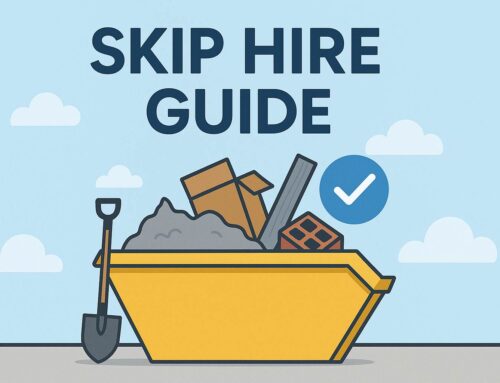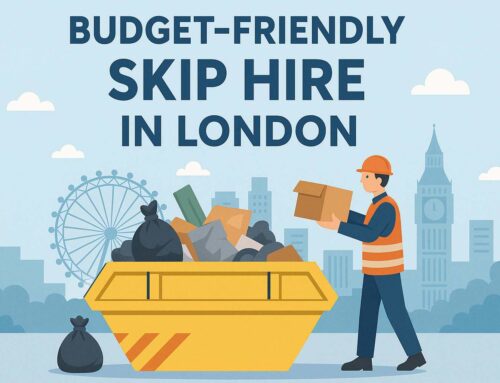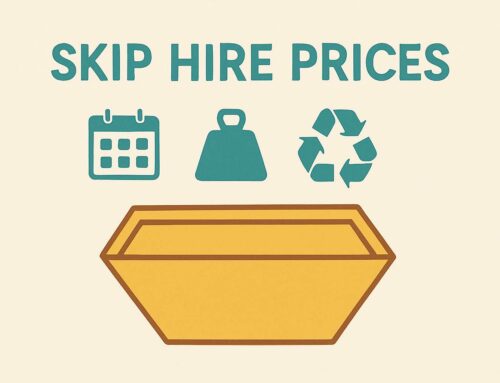What Happens to Skip Waste?
The lifecycle of skip waste encompasses a transformative journey from collection to recycling, embodying the principles of modern waste management and environmental stewardship. With companies like JN Skips at the forefront, the process of skip waste recycling has evolved into a sophisticated system that underscores the significance of recycling in our ongoing quest for sustainability. This article delves into the various stages of skip waste management, highlighting the critical role of recycling in reducing our environmental footprint and promoting the conservation of natural resources.
How Is Skip Waste Recycled?
Skip hire Prices, encompassing a broad spectrum of materials discarded from households, construction sites, and commercial entities, embarks on a complex journey from the moment it is collected. This journey is pivotal in modern waste management, as it involves not only the disposal of waste but also its transformation into new resources through recycling. The process exemplifies a commitment to sustainability, aiming to minimise the environmental impact of waste.
The Significance of Recycling in Modern Waste Management
Recycling is at the heart of contemporary waste management strategies, driven by the urgent need to address the environmental challenges of waste accumulation and landfill use. Through the lens of skip waste recycling, we can observe the practical application of recycling principles, demonstrating how waste materials can be repurposed and reintegrated into the economy, thus closing the loop of product life cycles with Mini Skip Hire.
1. The Genesis of Skip Waste
Types of Waste Collected in Skips
Skips are versatile containers used for the collection of a wide range of waste types, including construction debris, household clutter, garden waste, and industrial by-products. The diversity of waste collected reflects the flexibility of skip-hire services, such as those provided by JN Skips, catering to varied needs across sectors like construction and residential clean-ups.
The Collection Process
The process of skip waste collection is streamlined to maximise efficiency and environmental compliance. Companies like JN Skips utilise specialised vehicles and equipment to collect and transport waste from various sources, emphasising the importance of timely and effective waste removal in maintaining community cleanliness and environmental health.
2. Preliminary Sorting and Processing
The Initial Assessment
Upon arrival at recycling facilities, skip waste undergoes an initial assessment to categorise materials based on their suitability for recycling. This crucial step determines the subsequent processing path for each material type, ensuring that recyclable items are efficiently directed towards appropriate recycling streams.
Use of Technology in Sorting
Technological advancements have significantly enhanced the sorting process, with sophisticated systems now capable of separating materials with high precision. The use of technology in sorting not only improves the efficiency of recycling but also maximises the recovery of materials, contributing to the overall effectiveness of waste management practices.
3. The Recycling Pathway
Organic Waste: Composting and Biomass
Organic materials collected in skips are often processed into compost or biomass, providing a sustainable alternative to chemical fertilisers and contributing to renewable energy production. This pathway exemplifies the circular economy model, where waste is converted into valuable resources.
Construction Materials: Concrete, Wood, and Metals
Construction and demolition waste, including concrete, wood, and metals, are among the most commonly recycled materials. Through processes such as crushing and smelting, these materials are repurposed for use in new construction projects, significantly reducing the demand for virgin resources and minimising environmental impact.
Plastics and Polymers: From Skips to Reuse
Plastics and polymers collected in skips undergo specialised recycling processes to transform them into new products. This not only diverts substantial volumes of plastic waste from landfills but also addresses the pressing issue of plastic pollution.
Glass and Ceramics: Crushing and Melting
Glass and ceramics are recycled through crushing and melting processes, allowing them to be reformed into new products. This recycling pathway conserves raw materials and reduces the energy consumption associated with manufacturing new glass and ceramic products.
4. Non-Recyclable Skip Waste
Landfill Disposal: The Last Resort
For materials that cannot be recycled, landfill disposal remains the last resort. Companies like Mitcham Skip Hire strive to minimise the volume of waste sent to landfills, focusing on recycling and recovery options to the greatest extent possible.
Waste-to-Energy Solutions
Waste-to-energy solutions offer an alternative to landfill disposal for non-recyclable waste, converting it into electricity or heat. This innovative approach not only reduces landfill use but also contributes to energy production, demonstrating the potential of waste as a resource.
5. Environmental Impacts and Benefits
Reducing Carbon Footprint
Skip waste recycling plays a crucial role in reducing the carbon footprint associated with waste management. By diverting waste from landfills and converting it into new products or energy, recycling contributes to the reduction of greenhouse gas emissions. It supports global efforts to combat climate change.
Conservation of Natural Resources
Recycling conserves natural resources by reducing the need for virgin materials and preserving biodiversity. Through the recycling of construction materials, plastics, and metals, significant amounts of raw materials are saved, underscoring the environmental benefits of skip waste recycling.
6. Challenges in Skip Waste Recycling
Dealing with Hazardous Materials
Hazardous materials pose significant challenges in skip waste recycling, requiring specialised handling and disposal methods to ensure safety and compliance with environmental regulations. Overcoming these challenges is essential for the continued advancement of sustainable waste management practices.
Overcoming Technical and Economic Hurdles
The recycling industry faces technical and economic hurdles, including the need for investment in advanced recycling technologies and the fluctuation of markets for recycled materials. Addressing these challenges is crucial for enhancing the efficiency and viability of recycling operations.
Summary
The comprehensive journey of skip waste from collection to recycling highlights the pivotal role of recycling in sustainable waste management. By transforming waste into valuable resources, skip waste recycling exemplifies the principles of sustainability, conservation, and environmental stewardship. Companies like JN Skips are instrumental in advancing these efforts, demonstrating the multifaceted benefits of skip hire services in promoting efficient and responsible waste management. As we continue to confront the environmental challenges of our time, the importance of embracing recycling and sustainable waste management practices cannot be overstated.




